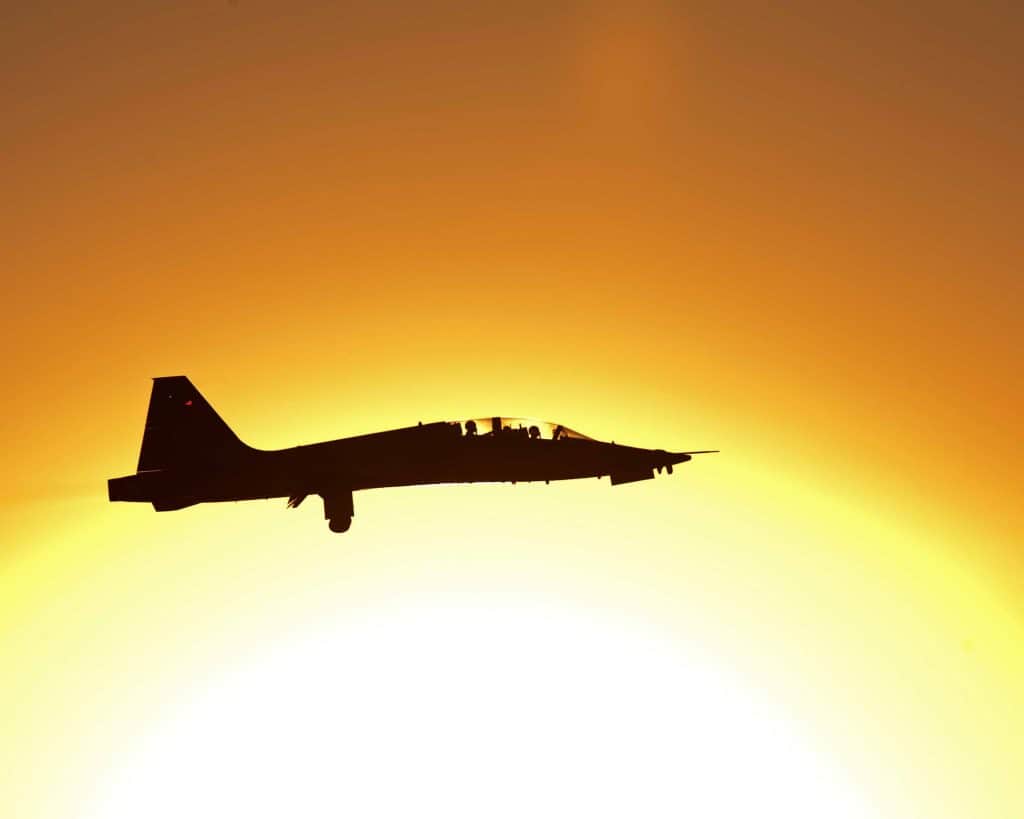Choosing Your Path—Part One: Learning to Fly in the Military

Learning to fly is a goal that many people have but that comparatively few actually accomplish. Outside of the obvious benefits of viewing the world from an undeniably unique perspective in a vehicle that demands skill and precision, the rewards of learning to fly are greater than at any point in the recent past; there are opportunities for rapid career advancement in the military and civilian sectors that would have been unheard of 20 years ago. For someone who wants to enjoy a career spent aloft, the time is most certainly here to get started on the path.
There is a choice to be made, however. Learning to fly is a complex and expensive process, both in terms of time and money. Learning to fly in the military has some unique advantages over learning to fly in the civilian world that a prospective pilot would be wise to consider. The initial financial terms are much more favorable than the civilian environment, and flying in the military will provide the profound sense of satisfaction that comes with serving our country. In part one of Choosing Your Path we’ll explore the benefits of learning to fly in the military, as well as some of the sacrifices you’ll be expected to make.
The Timeline
To be a pilot in the military, you will have to earn a four-year Bachelor’s degree from an accredited university. Four years may mean that you spend four years in school—This is especially true if you choose a Reserve Officer Training Corps (ROTC) program or if you are accepted into one of the service academies (the U.S. Naval Academy, Air Force Academy, or West Point). If you are prior service, or if you are planning to attempt to follow a route to the Air Force through Officer Training School (OTS), you may be able to complete the four-year degree requirement in less time by going to school full time (including summer terms).
Once you’ve knocked the college degree requirement out of the way and get to Undergraduate Pilot Training (UPT), you can expect to spend between one and a half possibly (depending on timing) two years in flight training. After UPT, you will owe the military the next ten years of your life. If airline flying is your ultimate goal, it will take you about 12 years to get to that cargo/passenger jet First Officer seat. This may seem like a long period of time, but you’ll be at the top of the airline applicant pool when the time comes; airlines love military pilots.
It is important to note that the 12 year timeline applies to active duty pilots only. If you plan to go directly to the Air National Guard or Air Force Reserve, the timeline to an airline seat becomes substantially shorter; assuming that you are on part time orders with your unit, you can apply for an airline job as soon as you have the required flight time; military pilots only need 750 total flight hours (200 of which must be cross country) to qualify for an FAA restricted airline transport pilot certificate.
Paid to Fly
Joining the military to fly has many benefits that are very unique. One benefit is that military flight training is completely free. Let me say that again “the flight training is free”. There is no paying for lessons, books, fuel, ground school or evaluator fees. Learning to fly in the military is all wrapped up into one school call UPT. You will walk in one day with little or no flight experience and walk across the stage at graduation with your wings, ready to go train on the military aircraft you have chosen. In fact, during training the Air Force will pay you a salary based on your officer rank to accomplish UPT, which starts at approximately $45,000 per year. This salary is guaranteed to increase each year as you increase your rank and time in service.
This paid flight training does come with a hefty price tag in terms of time; at the completion of UPT you WILL have a 10 year commitment to the military (active duty and some Guard/Reserve units only). Additionally, you will be required to deploy and serve our country—perhaps not always in vacation worthy locations. Uncle Sam will definitely get his money’s worth from your training, but you’ll be contributing to the national security of the United States in a valuable capacity that few others can claim. The vast majority of military pilots derive a great sense of satisfaction from serving in the military, and you will too. .
There are other financial incentives that come with military service that should be considered. Included in the pay the Air Force gives you are housing and cost of living allowances. These are known as the Basic Allowance for Housing (BAH) and the Basic Allowance for Subsistence (BAS). Both of these allowances will continue for the rest of your career and will be adjusted either up or down based on where you are stationed. If dorms are provided during UPT you will not get the BAH, but you will not have to worry about housing, either. Once you become a pilot you will start to also receive flight pay. This pay starts at approximately $125 per month in your first year and tops out at approximately $840 per month in your fourteenth year. By the time your UPT commitment will be over (assuming 10 years), you will be making just shy of $100,000 per year. If you stay for a full 20 year career you will be making well over $100,000 annually and will have earned a pension which will start the day you retire.
Unique Aircraft







